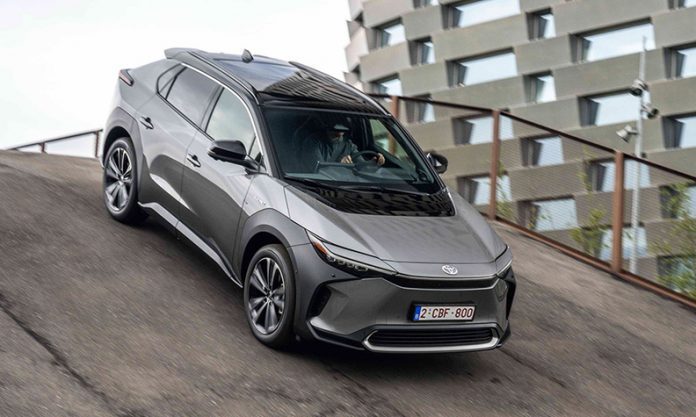Toyota has revealed plans to heavily boost electric vehicle development and production amidst shareholder protests over its slow-moving progress on electrification.
The Japanese car manufacturer published a new technology strategy on Tuesday, June 13, listing numerous innovations to improve its EV lineup and accelerate output. The brief includes plans to build next-generation, cost-effective batteries with driving ranges of 600 miles by 2026 and 900 miles by 2028. An electric vehicle from Toyota’s Lexus brand will be the first to feature the upgrades when it launches in three years. The automaker is also planning a facility overhaul based on Tesla’s “gigafactory” design, allowing it to streamline and increase production.
The new plans come shortly after several Toyota shareholders began efforts to oust ex-CEO Akio Toyoda, along with other members, from the company’s board. During his tenure, Toyoda received substantial criticism for his hesitation to compete in the EV market, instead choosing to invest more heavily in hybrid and alternative-fuel technology. Although the former executive retired from his leadership position earlier this year, the group is seeking to protest the brand’s unwillingness to announce a timeline for abandoning gas-powered vehicles in addition to its sluggish rollout of new electric models.
However, under its new CEO, Koji Sato, Toyota has still come a long way on EV development in a short amount of time. After assuming his position in April, the executive has announced a series of plans, goals and investments aimed at expanding the company’s electric segment. With the company’s next shareholder meeting slated for June 23, there is a chance its technology strategy will serve to soothe investor anxieties.




